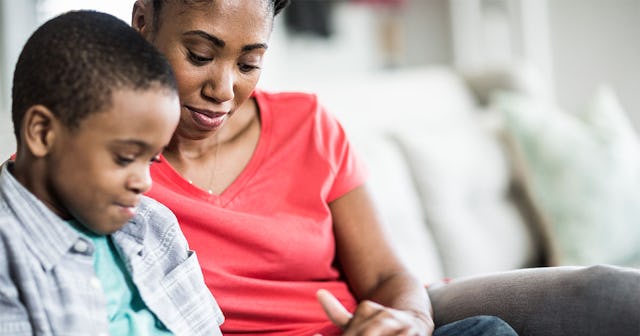What I Hope You'll Remember After Black History Month

I’ve never watched the video that circulated in May of George Floyd’s murder. I could not stomach what I heard from those who did: the cries for his mother, the agony of his last breath. My eyes were glued to the television during the Black Lives Matter Movement, and it was like watching scenes from history play out again in 2020. The tear gas, the shields worn by police, the screams and cries for justice by Black, brown and white people, the allies who tried to find their footing in a war they did not wage … all of it made me question everything I thought I knew about the country I called home.
I thought things were different, that the wounds my grandparents carried from drinking from a “colored only” water fountain, or sitting in a segregated school room in the 1940’s, had healed some. But I know better now — between the Capitol Riots, the murder of Breonna Taylor, and the inability to adequately mourn the murders of Black men and women I’ve never met like Ahmaud Arbery or Botham Jean
This Black History Month, for me, feels different … because life feels more fragile for me now more than ever.
Luis Alvarez/Getty
This month has been one of quiet reflection for me. Every single time I look at my teenage son, I worry about whether or not I’ve given him enough advice to keep him alive. Whenever I see a cop pass by my house, I take a mental inventory of where I’ve traveled that day, double check that my family members are all home, and I keep an eye out of my window, just in case I need to run for cover. These are fears that I have come to understand over the last few months, that I carry with me, like the wounds my grandparents carried with them. The scars will one day heal, I hope, but right now they all still feel very raw. I have three kids who I must help navigate the world in a new way, as biracial children living during a pandemic who still need to protect themselves from danger they don’t even really know exists. Luckily, at least my two little ones have no idea. But my son is painfully aware of the fact that our lives — his life —is valued less than that of his white buddy who lives down the block.
I’ve had to remind myself over the last month is that the only way forward is together. When I saw the confederate flags in the hands of the men and women in the Capitol on January 6th, flying freely, their statement was clear and the reality of what we are dealing with as a country never felt more heartbreaking. There is still much work to be done. There are still books to be read. There are still families of Black people mourning the loss of their loved ones. There are families like mine who are still struggling to make sense of what we are living through as a people.
For us, being Black doesn’t only last for a month; it is our everyday reality. For my lifetime, there is work that will continue to need to be done, minds that need to be enlightened, and hearts that need to be softened to understand that this is our America. We cannot claim a land if we are not willing to take care of it and everyone who lives on it. Let’s vow to move forward — for the rest of 2021 and beyond — not focusing on amplifying the voices or the causes or the memories of Black people for a singular month, but every single day.
This article was originally published on